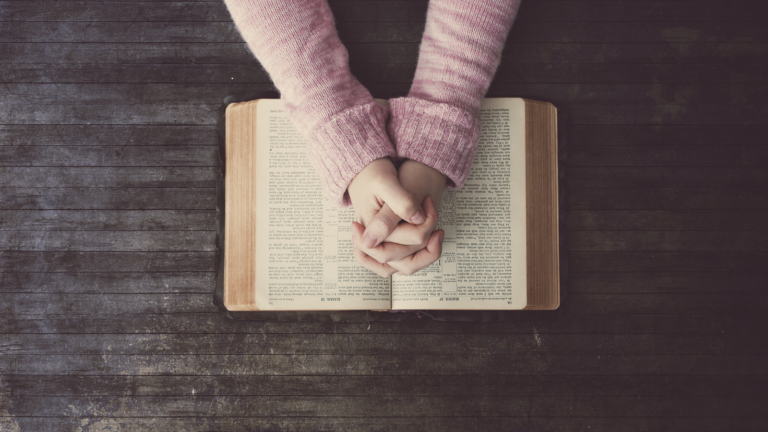Beware! These 14 Mistakes Could Derail Your Spiritual Journey
Starting a spiritual journey is a personal and transformative experience where you seek meaning and a deeper connection with something bigger. But as you walk this path, you need to be careful. There are pitfalls that can mess up this sacred journey.
In this exploration, we’re highlighting 14 mistakes you should watch out for. These missteps, from subtle judgments to neglecting self-reflection, have the power to steer you away from the fulfilling path you’ve set out on. So, get ready, keep an open mind, and let’s uncover these potential stumbling blocks together to make sure your spiritual journey is one of growth and lasting fulfillment.
1. Judging Others

A common mistake many people make on their spiritual journey is judging others based on their beliefs or practices. It’s important to understand that everyone takes different paths in their search for spirituality.
Instead of being quick to judge, it’s better to appreciate and respect the diverse ways people approach their spiritual understanding. Being open-minded and accepting creates an environment where everyone’s journey is valued.
2. Being Ridgid in Your Beliefs

It’s important to have a strong foundation in your faith, like the roots of a tree that keep you grounded. But don’t get too stuck in your beliefs – think of your faith like a tree’s branches that need to move with the wind.
Stay open to new ideas and different viewpoints so that your spirituality can grow and change over time. Being flexible in your beliefs is like letting your faith tree grow fresh leaves, each one representing a lesson or insight that helps you on your journey.
3. Neglecting Self-Reflection

An important part of your religious journey is taking time to think about yourself. Look at why you believe what you do and how those beliefs affect your everyday actions. Take a look at how your faith connects with your life.
This self-reflection is about understanding the link between what you believe and how you live. Regularly thinking about these things allows you to grow personally, stay true to your beliefs, and understand your spiritual journey better.
4. Ignoring Other Religions

Don’t make the mistake of ignoring or pushing away other religions. It’s important to take the time to learn about and appreciate the different ways people practice their beliefs. By doing this, you help create a more inclusive view of the world that respects and values diverse spiritual traditions.
Understanding different religions opens the door to various perspectives, each contributing to the rich tapestry of human experience. This openness broadens your own spiritual outlook and helps you build respect and appreciation for the diverse ways people find meaning in their lives.
5. Neglecting Community Involvement

Religious communities are more than just places to pray—they’re like big, supportive families. To make the most of your experience, avoid staying by yourself. Join in with your community by participating in traditions, attending events, and helping with activities that benefit others.
Think of your religious community as a bunch of friends who are there for both the good times and the challenging moments. Being active in your community strengthens your connection with others and makes your spiritual journey more fulfilling.
6. Chasing Perfection

Remember, nobody is perfect, and that includes how we practice our faith. Trying to be flawless in what we believe or do can make us feel disappointed and frustrated. It’s better to accept that imperfections are a normal part of being human.
Mistakes and challenges happen, and that’s okay. It’s about understanding that life has both good and tough times, and learning and growing from those experiences is a natural part of our faith journey. So, instead of aiming for perfection, focus on the progress and lessons that come with embracing the imperfect but meaningful parts of being human on your spiritual path.
7. Burning Out

Doing too much in your religious activities can make you feel exhausted, and that’s called burnout. It’s important to find a balance. Choose a pace that you can keep up with over time so that you can stick to your spiritual practices without harming your overall well-being.
It’s about finding the right balance where you stay committed to your faith while also making sure it fits well with the other parts of your life, making your spiritual journey sustainable and satisfying.
8. Using Religion as a Weapon

It’s really important not to use your religion to hurt others. Don’t let your beliefs be an excuse to harm, discriminate, or exclude people. Instead, focus on spreading love, being kind, and understanding others.
When we follow these principles, we create a more inclusive and friendly environment. Remember, your faith should bring people together, not push them away. So, let it be a source of unity and understanding, making the world a better place for everyone.
9. Neglecting Critical Thinking

It’s not good to just believe in your faith without really thinking about it. It’s better to use critical thinking, which means asking questions and trying to understand your beliefs instead of just accepting them without thinking.
This way, you become more engaged with your faith, and it helps you understand it better. Critical thinking doesn’t mean doubting your faith. Instead, it means exploring and discovering more about what you believe. So, be curious and actively take part in your faith journey, thinking about it in a meaningful way.
10. Focusing on Materialism

It’s easy to start collecting symbols and trinkets when you’re trying to grow spiritually. But be careful not to care too much about having stuff. The real heart of spirituality is in how you feel and think, not in the things you own.
While symbols and trinkets can be meaningful, remember that they’re just outside expressions of what you believe inside. So, instead of focusing too much on having things, work on being kind, understanding, and compassionate. The true growth of your spirit comes from the goodness inside you and how you positively affect the world, not just from collecting things.
11. Skipping Rituals and Practices

It’s important to be consistent in your spiritual journey. Missing your regular rituals and practices can slow down your progress and make it harder to connect spiritually. Create a routine that fits your beliefs.
This way, you have a plan that matches the values and principles of your faith. Following this routine not only shows your dedication but also makes your spiritual experience stronger over time. Think of your spiritual practices like daily affirmations, helping your faith journey grow and become more meaningful.
12. Lacking Compassion

One of the biggest mistakes in a religious journey is forgetting about the essential teachings of compassion and love. Embracing these virtues is crucial for your personal growth and creating a more peaceful world. Compassion and love are universal principles that connect people from different faiths and backgrounds, promoting understanding and unity.
By living out these core teachings, you help yourself grow spiritually and contribute to making the world a kinder and more connected place. So, focusing on compassion and love is like building a solid foundation for a world where people respect and understand each other.
13. Not Forgiving Others

In your spiritual journey, forgiveness is a big deal. Holding onto grudges or staying upset about things can make your soul feel heavy. It’s important to realize how powerful forgiveness can be.
When you let go of old grudges, you’re not just freeing yourself from negative feelings, but you’re also creating space for real healing. Forgiveness is like a superpower that helps you grow personally and have better relationships with others in your spiritual community.
14. Ignoring Different Beliefs

Another big mistake is ignoring how diverse beliefs can add value to your spiritual journey. Don’t stick to just one way of thinking. Be open to different perspectives. Appreciating the beauty of various spiritual practices helps you see the many sides of faith.
When you learn from and respect different beliefs, you’re creating a more open and understanding world. Remember, unity isn’t about everyone being the same. It’s about celebrating the unique ways we all experience our faith.
How to Make Bible Reading a Daily Habit

Getting in the habit of reading the Scriptures daily is actually easier than you might think…if you use the tips and a daily Bible reading plan in this post. Learning how to read the Bible can be fun and enjoyable!
Read How to Make Bible Reading a Daily Habit
Do You Truly Enjoy Reading the Bible? You Can!

Reading the Bible doesn’t have to be dull, dry, or boring; You truly can look forward to and enjoy reading the Bible. Check out these 6 practical and effective tips to help!
Read Do You Truly Enjoy Reading the Bible? You Can!
15 Insightful Bible Study Questions (Individuals or Groups!)

Whether you’re a small group leader looking for some interesting Bible topics to discuss, or you’re seeking devotional questions for your personal quiet times, some general Bible study questions are essential for exploring and understanding any part of the Scriptures.
Check out these 15 thought-provoking Bible study questions to help you take your devotions even deeper.
15 Insightful Bible Study Questions (Individuals or Groups!)
How to Put on the Full Armor of God (Women only!)

The “full armor of God” scripture in Ephesians 6 is one of the better-known passages to a lot of Christians. At the same time, the scripture is so familiar that it tends to have a lullaby effect.
What’s more, since a warrior in armor is a pretty masculine image from a different time and place, it doesn’t seem very relatable to a woman in the 21st century. But it turns out there is a lot to learn about the full armor of God when you study this passage in its context and apply it to women today!
How to Put on the Full Armor of God (Women only!)
How to Put God First in Your Life (Including Powerful Bible Verses)

Sometimes our plates become so full of things that we accidentally put God on the back burner. We don’t mean to, but the distraction of life tears us away from putting God first in our lives as He wants us to do.
If you’re feeling like God is distant because of your hectic schedule, keep reading to learn more about putting God first, even when your plate is full.
How to Put God First in Your Life (Including Powerful Bible Verses)







